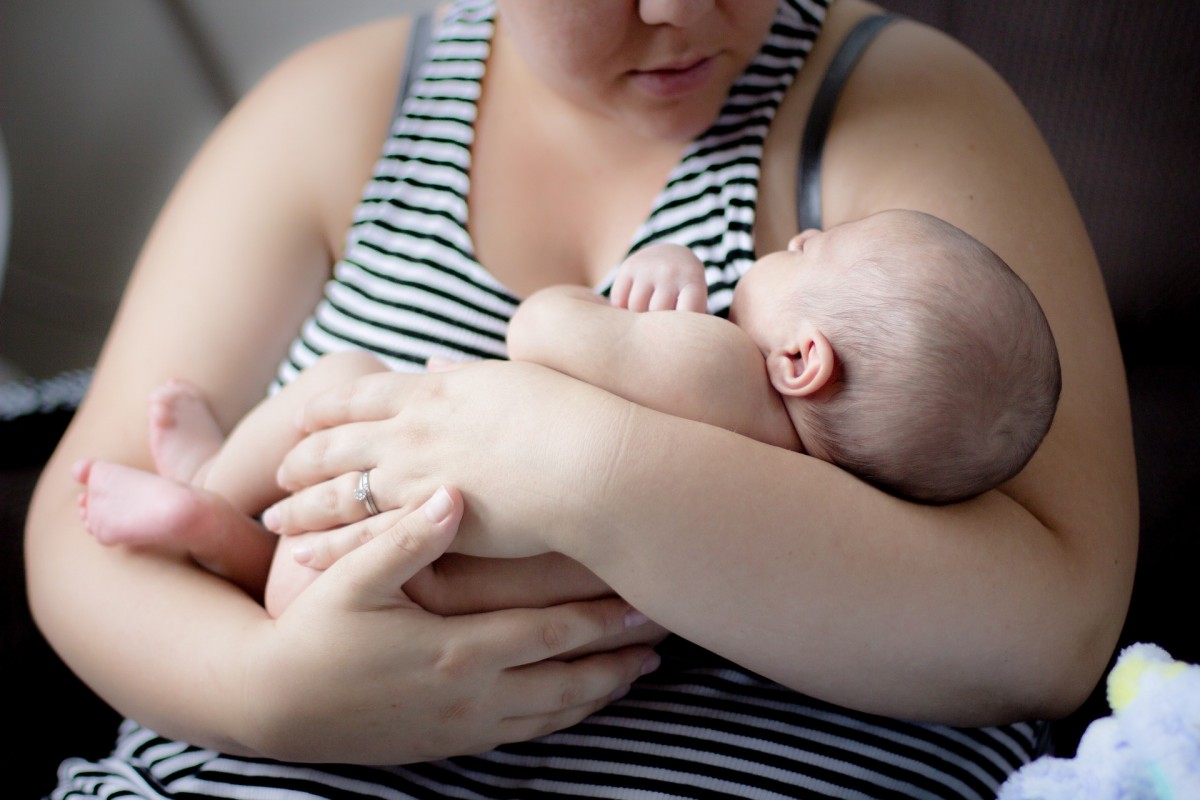Got cortisol? Project explores the presence of a stress hormone in breast milk
Rachael Anyim receives Wenner-Gren fieldwork grant for her doctoral research

Milk doesn’t just pass nutrition from mother to baby, but information about the world outside. Exactly how this happens is the focus of Rachael Anyim’s research at Binghamton University.
A doctoral candidate in anthropology, she recently received a $25,000 Wenner-Gren Foundation Dissertation Fieldwork Grant to aid her data collection efforts. The grant is awarded to research projects that advance anthropological literature and the understanding of what it means to be a human being.
“Being awarded the Wenner-Gren grant is a fantastic opportunity and a dream come true,” she said.
Anyim’s research focuses on cortisol, considered the quintessential stress hormone — although there are others at work in our bodies, including adrenaline and noradrenaline, she pointed out. Currently, the evidence is ambiguous as to whether maternal stress contributes to cortisol in breast milk. Higher levels of milk cortisol are associated with first-time mothers and pre-term babies, while lower levels are associated with greater maternal education, for example.
Despite its association with stress, cortisol’s presence may actually carry benefits for an infant’s metabolism and immune system.
“My research is looking to advance the knowledge about what influences milk cortisol, and the benefits for infant growth and health in babies’ immune outcomes,” Anyim said. “There are studies that show that cortisol is implicated in signaling, which relays the information about moms and their environment to infants, to help babies adjust to life in that shared environment.”
Anyim’s research question is fundamental to lactation biology, according to her mentor, Associate Professor of Anthropology Katherine Wander. Human milk contains nutrients, growth factors and immune cells, which makes sense, considering its role in infant nutrition and protection.
“But infants can’t fight and they can’t flee, so you wouldn’t necessarily expect cortisol to be in milk. Biological anthropologists have argued that it’s probably there to shape infant development in an important way, but that’s difficult to evaluate,” she said. “Rachael’s study design gives a nice, elegant test of this hypothesis.”
In the field
A Brooklyn native, Anyim earned her bachelor’s in cell and molecular biology at Binghamton in 2015, followed by a master’s degree in biological sciences in 2016. She decided to transition her knowledge of human biology from the cellular level to something larger scale; biological anthropology proved a good fit, coupled with her interest in public health and pediatric infectious diseases.
“I wanted to take what I had learned in my years in biology and apply it to humans as a whole, which led me to the combined MA/PhD program in biomedical anthropology,” said Anyim, who earned a master’s degree in anthropology in 2019.
Her current project began in the summer of 2019 as a pilot study, but the coronavirus pandemic prevented further participant enrollment. Recently, she was able to resume research, which involves entering participants’ homes — while taking precautions to protect mothers and babies.
Her fieldwork will take place in the Southern Tier, including Broome, Tioga, Tompkins and Chenango counties.
“This area is marked by rich ethnic and socioeconomic diversity, which will help me measure different areas that may be influencing cortisol levels,” she said.
She will collect specimens from participants in the morning, roughly a half-hour to 45 minutes after waking, and again in the late evening, close to bedtime. That will allow her to measure the circadian rhythm of cortisol, which is typically higher in the morning and at its lowest level close to bedtime.
She’s particularly interested in seeing how short-term stressors such as sleep disruptions versus long-term stressors such as socioeconomic status, chronic disease or discrimination affect cortisol concentrations differently.
“This can help with understanding how stress is embodied by mothers and which stressors provide infants with reliable signals of prevailing environmental conditions to calibrate their long-term development to the conditions they can expect. Then, I’m looking to see how these associations can impact milk immunity and infant immunity,” she explained.
Based on the literature and preliminary data, she expects that milk cortisol may signal long-term environmental conditions, and that it’s positively correlated with both milk immune activity and infant immunity, she said.
Thanks to the Wenner-Gren funds, Anyim will be able to compensate study participants, as well as purchase needed equipment for her research, such as breast pumps and scales.
She will also be able to provide stipends to interns and hopes to draw undergraduate students from historically underrepresented backgrounds interested in anthropology, lactation biology or public health. Interns would gain valuable experience in lab work, and will ultimately have the opportunity to publish their findings and present them at conferences.
“It will also allow me to get experience as a mentor, which is a passion of mine,” Anyim said. “That’s something that I hope to continue doing in an academic setting.”

